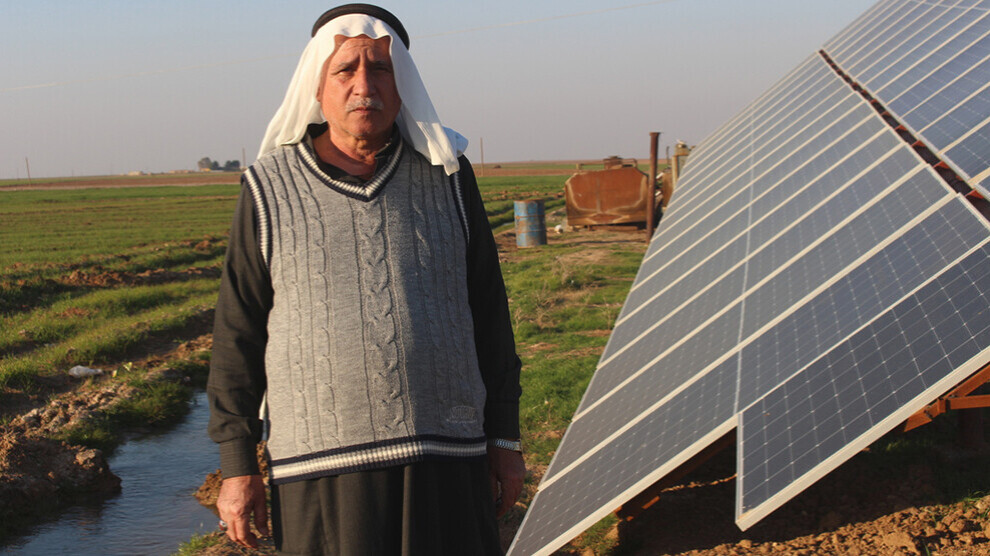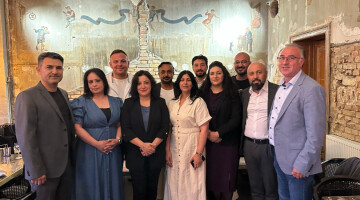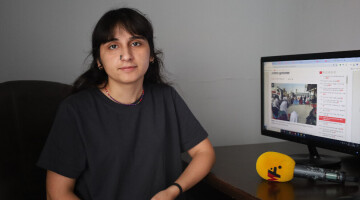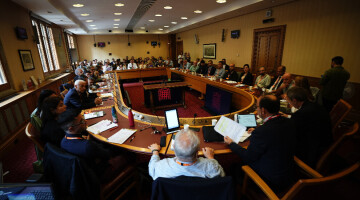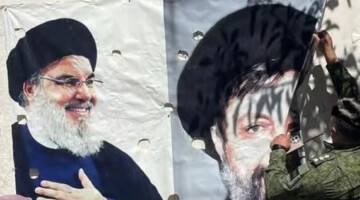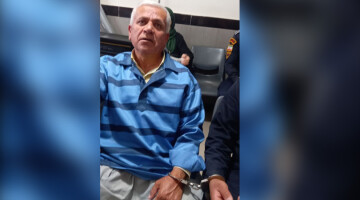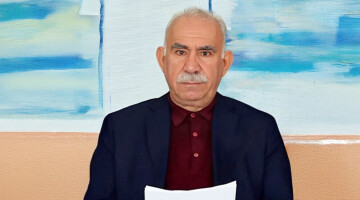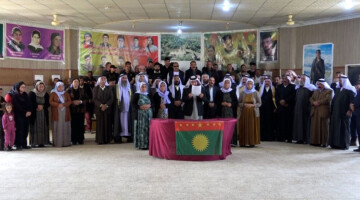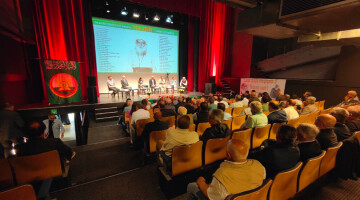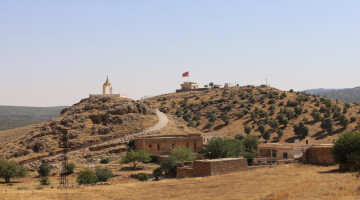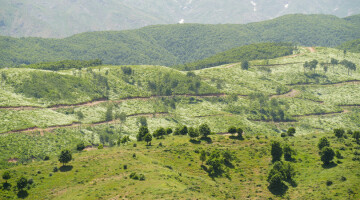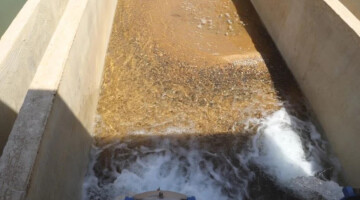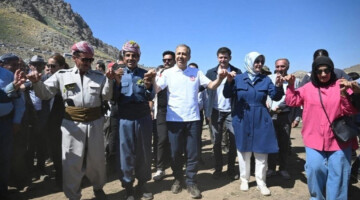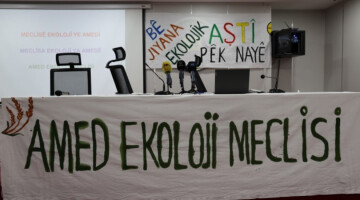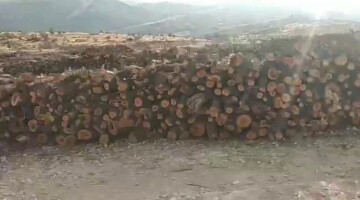Due to the ever-increasing drought and the reduction of the flow level of the Euphrates by the Turkish state, agriculture in north-eastern Syria is dependent on energy-intensive pumping systems for irrigation. However, the falling level of the Euphrates also affects the power supply, so that the pumping systems can no longer be supplied. So far, the farmers have mainly relied on diesel generators. In the current farming season, more and more of them are switching to solar technology. Depending on the depth from which the water has to be pumped, more or fewer solar panels are needed for this.
One of the agricultural workers who have switched to solar technology is Taha al-Najim. In his fields near Til Temir, it has practically not rained for three years. Al-Najim procured 102 solar panels to power his 40-horsepower pump. The pump pumps water from a 175-metre-deep well and irrigates 420 hectares of wheat fields with it.
Speaking to ANHA, al-Najim commented on the difference between diesel-powered generators and solar energy, saying: "Solar energy is clean energy and good for the environment. However, it is usually dependent on the time of day and the amount of sunlight. For this reason, the energy generated is not sufficient for irrigating cultivated land. Diesel-powered generators can always be used, but they bring many problems, especially the high cost of diesel."
Another farmer from Qamişlo, Yusif Ramadan, installed 96 solar panels on his field, which he uses to power a 40-horsepower pump. Ramadan stated that installing solar panels is expensive at first, but in the long run it is better than diesel-powered generators. The cost of installing a solar panel ranges from US$110 to US$180, depending on the brand and size of the panel, as well as the cost of making the scaffolding, cables and battery.
One of the basic principles of the self-governing region of North and East Syria is ecology. Despite war conditions, attempts are made to act in an ecologically sustainable way. Nayif Ibrahim, co-chair of the Committee for Agriculture and Irrigation of Qamişlo Canton, said: "We support the use of solar energy because it is good for the environment and costs less." However, he said, there are no possibilities so far to provide panels for farmers.
The Agriculture Committee and the Fuel Directorate in North and East Syria continue to distribute diesel oil to farmers to irrigate their fields. Some farmers criticise the delay in distributing diesel fuel, noting that it is not enough to run generators and pumps.

